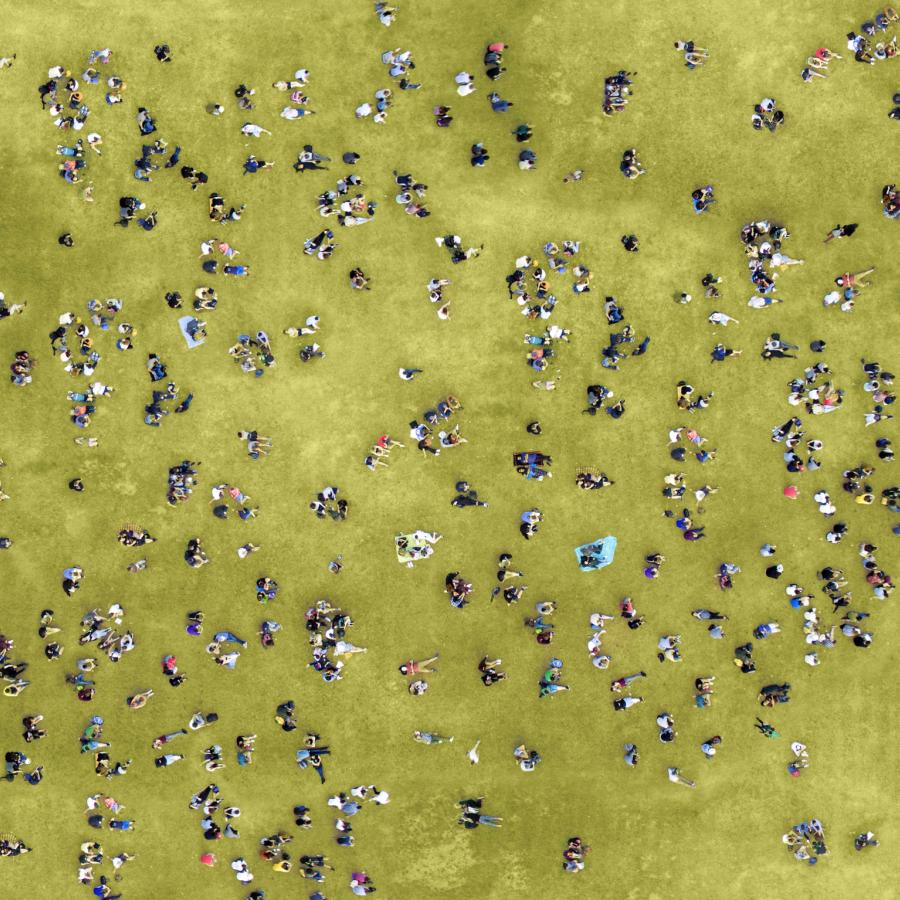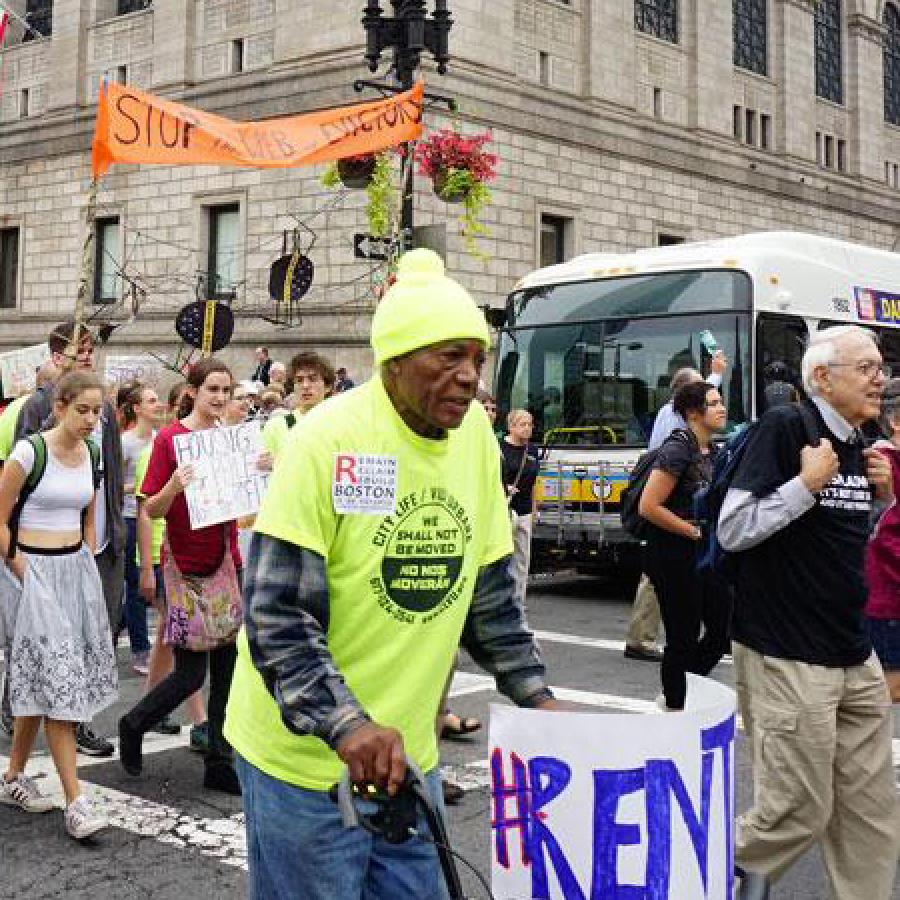New Executive Order, Same Illegal Discrimination
Yesterday the Trump Administration released a new executive order, “Protecting the Nation from Foreign Terrorist Entry Into the United States.” This order revises the infamous “Muslim Ban” executive order from late January, which was blocked by the courts. We are confident that the courts will similarly block enforcement of the revised executive order.
The new executive order makes some changes aimed at withstanding court scrutiny, but the basics of the order remain in place – including its illegal discrimination against immigrants from predominantly Muslim countries, without any factual basis in national security needs. (The Administration has stated that the new executive order will advance “the same basic policy outcome” as the prior order.) The Administration’s changes constitute tinkering around the edges, while leaving in place the order’s central, discriminatory purpose and effect.
Following is more detail regarding the new executive order, including a short explanation of legal claims against the order that are likely to be addressed by courts. We have also included a list of some of the national advocacy organizations advancing legal and non-legal strategies to protect immigrants and refugees from the devastating effects of the Trump Administration’s hasty and baseless actions.
PolicyLink stands with advocates for immigrant communities and families around the world in opposing the discriminatory and needless revision of our nation’s longstanding immigration and refugee programs. To better serve the Equity Network in these challenging times, PolicyLink has added a seasoned public interest attorney, Julian Gross, to our staff. The information below was prepared by Julian, PolicyLink James O. Gibson Innovation Fellow, based in the PolicyLink Oakland office.
Changes in the New Executive Order
The new executive order is drafted more carefully than the prior order, and contains some changes clearly aimed at helping the order withstand court challenge. The new order is somewhat more limited in scope than the prior order: it applies only to individuals who are outside the United States as of March 16, and who do not have or have not recently had a valid visa. In addition, there are explicit exceptions to the new travel ban for many classes of people, including lawful permanent residents, others permissibly in the country, certain dual nationals and diplomats, persons who have already been granted asylum or refugee status, and others. Finally, there is a new “waiver” section, allowing discretionary case-by-case waivers for several other categories of people, including those needing immediate medical care, those who have provided assistance to the U.S. Government, and those working for international organizations, etc.
This narrower version eliminates some situations in which the prior order was obviously overbroad and plainly unrelated to valid security concerns. However, the core provisions of the prior order are still in place, and the majority of the legal claims that were raised in multiple lawsuits challenging the prior order are just as strong with regard to the new executive order. These claims are described below.
Crucially, the legal claim that was the main basis of the nationwide injunction against the prior executive order is not affected by the changes made by the Administration. (The Ninth Circuit upheld a nationwide injunction against the prior order based primarily on a holding that the order violated individuals’ procedural due process rights.) This and other claims are sure to be raised against the new executive order, either in existing cases or in new litigation, on behalf of states and affected individuals.
Legal Claims Against the New Executive Order
The following legal claims were raised against the January 27 executive order. These and others will likely be raised against the new executive order as well.
- Equal Protection. The Constitution’s guarantee of equal protection requires “strict scrutiny” of government classifications based on national origin or religion. Strict scrutiny is the highest constitutional standard, making it very difficult for the government to justify its actions and have them upheld by courts.
- Claim: The executive order explicitly discriminates against individuals based on national origin, without adequate justification.
- Claim: Based on the choice of countries the executive order targets, the executive order discriminates against individuals based on religion, without adequate justification. Note that the Administration attempted to partially address this claim in the revised executive order by removing the original order’s “religious minority” exemption, which was seemingly aimed at benefitting Christians, given the countries at issue. This claim still applies to other aspects of the new executive order, however, including the choice of countries affected.
- Establishment Clause. The First Amendment prohibits the federal government from establishing a state-endorsed religion, or limiting the free exercise of religion. Government actions that discriminate between religions can be challenged under the establishment clause.
- Claim: By singling out majority-Muslim nations without legitimate basis, the executive order discriminates between religions, in violation of the establishment clause of the First Amendment.
- As noted above, the Administration attempted to partially address this claim in the revised executive order by removing the original order’s “religious minority” exemption, which was seemingly aimed at benefitting Christians, given the countries at issue. This claim still applies to other aspects of the new executive order, however.
- Procedural Due Process (Fifth Amendment). The Constitution’s due process clause requires a fair process before the government denies important personal rights and interests, often including adequate notice, court hearings, right to counsel, avoidance of arbitrary action, and so forth.
- Claim: The executive order affects individuals’ protected rights without providing them adequate opportunity to defend themselves.
- This claim is crucial, in that it focuses on the reality of how the order will be implemented, including the degree of access to courts and judicial oversight.
- Immigration and Nationality Act. This law, passed by Congress in 1965, sets rules that the executive branch has to follow in dealing with immigration issues.
- Claim: The executive order violates the INA, which prohibits the executive branch from discriminating between countries in issuance of visas, and which establishes rights to asylum for certain individuals.
- Claim: The executive order violates the INA, which prohibits the executive branch from discriminating between countries in issuance of visas, and which establishes rights to asylum for certain individuals.
- Religious Freedom Restoration Act (RFRA). This federal statute requires courts to apply strict scrutiny in reviewing actions that inhibit individuals’ free exercise of religion.
- Claim: The executive order violates the RFRA’s prohibition of government substantially burdening exercise of religion.
- This claim is based on the executive order’s exclusive focus on majority-Muslim countries, and other aspects of its design and implementation.
- As noted above, the Administration attempted to partially address this claim in the revised executive order by removing the original order’s “religious minority” exemption, which was seemingly aimed at benefitting Christians, given the countries at issue. This claim still applies to other aspects of the new executive order, however.
In addition to the above claims against the executive order, there are crucial legal issues that courts will have to address based on the Administration’s defense of the executive order. These include:
- how much judicial review is permissible with regard to the executive’s actions assertedly related to national security and the country’s borders;
- the ability of states to bring claims on their own behalf or on behalf of others; and
- which of the above legal claims may be raised by non-citizens
Details Regarding Content of the Executive Order
The executive order suspends entry into the United States of non-citizens from Libya, Somalia, Yemen, Iran, Sudan, and Syria. (Executive Order Section 2(c).) The suspension initially runs for 90 days from March 16, 2017.
- The order includes new provisions indicating that the travel ban applies only to individuals from the listed countries who meet all of the following criteria:
(i) are outside the United States on March 16, 2017;
(ii) did not have a valid visa at 5:00 p.m., Eastern Standard Time on January 27, 2017; and
(iii) do not have a valid visa on March 16, 2017.
(Section 3(a).)
- In addition, the order includes new provisions indicating that the travel ban does not apply to individuals from the listed countries who meet any of the following criteria:
(i) any lawful permanent resident of the United States;
(ii) any foreign national who is admitted to or paroled into the United States on or after March 16;
(iii) any foreign national who has a document other than a visa, valid on the effective date of this order or issued on any date thereafter, that permits him or her to travel to the United States and seek entry or admission, such as an advance parole document;
(iv) any dual national of a listed country when the individual is traveling on a passport issued by a non-listed country;
(v) any foreign national traveling on a diplomatic or diplomatic-type visa, North Atlantic Treaty Organization visa, C-2 visa for travel to the United Nations, or G-1, G-2, G-3, or G-4 visa; or
(vi) any foreign national who has been granted asylum; any refugee who has already been admitted to the United States; or any individual who has been granted withholding of removal, advance parole, or protection under the Convention Against Torture.
(Section 3(b).)
- The executive order includes a new waiver provision, allowing discretionary waiver, on a case-by-case basis, of the travel ban for individuals in any of several categories, including:
(i) previously admitted for specific activities;
(ii) previously established significant contacts with the United States but is outside the United States on the effective date of this order for work, study, or other lawful activity;
(iii) seeks to enter the United States for significant business or professional obligations and the denial of entry during the suspension period would impair those obligations;
(iv) seeks to enter the United States to visit or reside with a close family member (e.g., a spouse, child, or parent) who is a United States citizen, lawful permanent resident, or alien lawfully admitted on a valid nonimmigrant visa, and the denial of entry during the suspension period would cause undue hardship;
(v) an infant, a young child or adoptee, an individual needing urgent medical care, or someone whose entry is otherwise justified by the special circumstances of the case;
(vi) employed by, or on behalf of, the United States Government (or is an eligible dependent of such an employee) and the employee can document that he or she has provided faithful and valuable service to the United States Government;
(vii) traveling for purposes related to an international organization or to conduct business with the U.S. Government;
(viii) landed Canadian immigrant who applies for a visa at a location within Canada;
(ix) traveling as a United States Government-sponsored exchange visitor.
(Section 3(c).)
- The executive order indicates that Iraqi nationals “should be subjected to thorough review,” but does not impose a presumptive ban, the way the order does with regard to the six listed countries. (Section 4.) This is a change from the prior executive order.
- The executive order formally revokes the prior executive order, no. 13,769. (Section 13.)
- The executive order instructs the Department of Homeland Security to request from other countries information it deems relevant to security evaluations of applicants for entry, and contemplates blocking entry of individuals from countries that do not comply with such information requests. (Sections 2.(a), (b), (d)-(f).)
- The executive order instructs the Department of Homeland Security to develop a uniform, enhanced screening program “to identify individuals seeking to enter the United States on a fraudulent basis with the intent to cause harm, or who are at risk of causing harm subsequent to their admission.” (Section 5.)
- The executive order suspends admissions under the U.S. Refugee Admissions Program (USRAP) for 120 days. The order requires review of security procedures for screening individuals in the program, and indicates that the program may only be resumed “for nationals of countries for which the Secretary of State, the Secretary of Homeland Security, and the Director of National Intelligence have jointly determined that such additional procedures are adequate to ensure the security and welfare of the United States.” (Section 6(a).) The new order removes the prior order’s legally questionable provision that future refugee admissions be prioritized for individuals facing religion-based persecution, but only where the person’s religion is a minority religion in the country in question.
- The executive order caps the total number of refugees that can be admitted at 50,000. (Section 6(b).) The prior order’s permanent suspension of admission for refugees from Syria has been removed.
- The executive order suspends the Visa Interview Waiver Program. (Section 9.)
- The executive order contains other provisions relating to federal government reporting and reconsideration of certain programs and positions. (Sections 7 and 8.)
- The executive order requires the Department of Homeland Security and the Office of the Attorney General to track and report a range of crimes and actions taken by foreign nationals. (Section 11.)
Advocacy Resources
Following are some of the many organizations working to protect our immigrant communities.
- National Immigration Law Center
- Immigrant Legal Resource Center
- ACLU Immigrants' Rights Project
- Council on American-Islamic Relations
- Immigration Advocates Network
- Asian Americans Advancing Justice
- National Immigration Project
- #NoBanNoWallNoRaids
- AltoTrump


